No Påsk – or Easter – celebration would be complete in Sweden without eggs, witches and pickled herring! If this is not the Easter you grew up with, here’s the YLC run-down of some Swedish traditions that have left many expats scratching their heads. Glad Påsk!
Easter is a widely celebrated holiday in Sweden with most people concentrating on family gatherings, large feasts and traveling out to the countryside.
The holiday marks the first long weekend of spring in Sweden, so for most Swedes this is the time to head out to the country side and wipe the cobwebs off their summer homes for the first time this year. It also seems like the first chance to break out the gardening tools and prepare their “trädgård” for spring. If the snow is gone, that is.
Although Easter is a fairly secular feast and many Swedes don’t place much emphasis on church attendance during the holiday, there are still Easter sermons held in most churches around the city, just pop into your church of interest and inquire about their Easter Sunday schedule.
On Påskafton, (Holy Saturday or Easter Eve) young and old generally exchange Easter Eggs. Unlike in many other countries, these are made out of cardboard and feature chickens, bunnies and other images traditionally associated with Easter. Inside the giver has placed Easter treats; little eggs made out of chocolate or marzipan and other sweets. There may be a large chocolate rabbit as well, if the Easter Bunny so pleases.
Just like many other Swedish holidays, traditional Swedish fare is brought out, featuring the familiar crisp-bread, pickled fish (sill) and spirits (snaps). However, during Easter it is Swedish custom to have lamb for supper and also to consume a lot of hard-boiled – and painted – eggs, traditionally eaten the evening before Easter Sunday.
Another popular dish that will find its place on most tables is known as “Janssons Frestelse’”(which translates to ‘Jansson’s Temptation’) a creamy potato, onion and anchovy casserole. You know – like you were served at Christmas!
Don’t be alarmed if you receive one or two stray ‘Glad Påsk’ cards in time for the holiday – some Swedes still send each other cards at Easter, although it does seem to be a dying tradition among the younger generations.
Also make sure to do your shopping on the Thursday before the Easter weekend as most shops will be closed for the holidays!
What you can expect:
Smörgåsbord: Just like any other Swedish holiday, the celebration feast or “smörgåsbord” consists primarily of pickled fish and spirits. However, during Easter it is Swedish custom to also consume a lot of hard-boiled eggs, traditionally eaten the evening before Easter Sunday. Another popular dish that will find its place on most tables is known as ‘Jansson’s Temptation’ a creamy potato, onion and anchovy casserole.
Witches: According to Swedish folklore, Easter was a time when witches stole household brooms and flew to Blåkulla or “Blue Mountain” (a fictional mountain said to be found in Germany) to consort with the devil. From this ancient superstition a modern tradition has taken root in the form of a mini-Halloween where children dress up as Easter witches with headscarves and painted red cheeks and go door to door with a copper kettle looking for treats. This usually happens on the Thursday or Saturday before Easter. Want to join in but don’t know how? Here’s what to do!
Birch twigs: Decorated birch twigs (påskris) are a common sight in Swedish homes during Easter. These twigs originally served as a reminder of Christ’s suffering by which young people would playfully lash each other with silver birch twigs on the morning of Good Friday. Today ordinary birch branches, decorated with brightly colored feathers, are simply placed in a vase and seem to be an exclusive Easter ritual of Sweden.
Featured Image: Lena Granefelt/imagebank.sweden.se







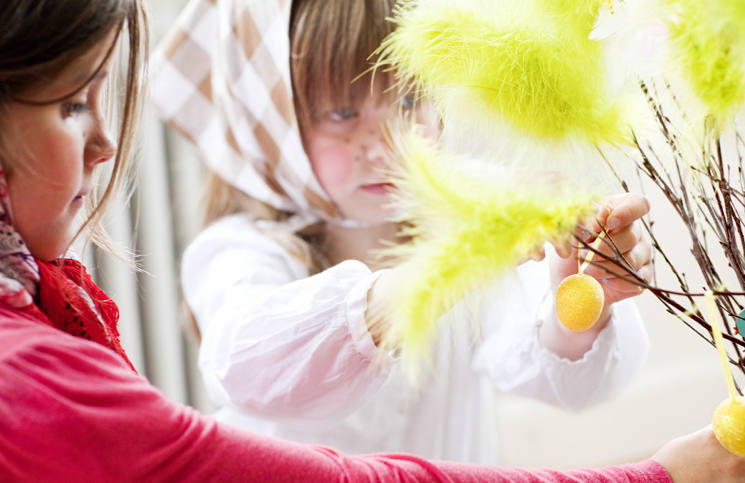

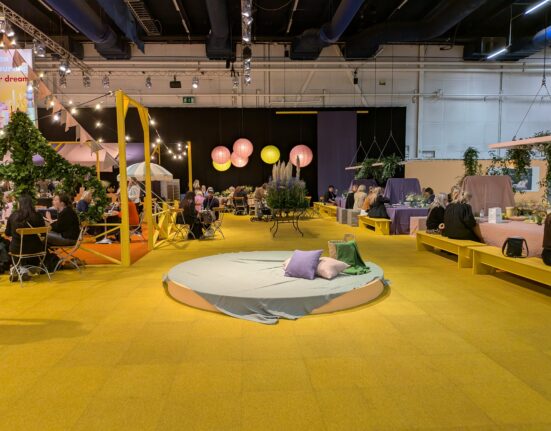
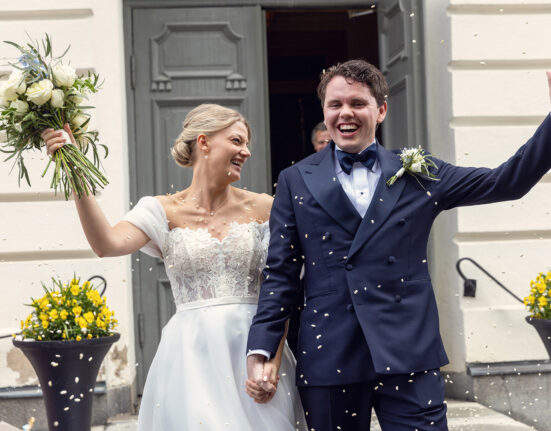
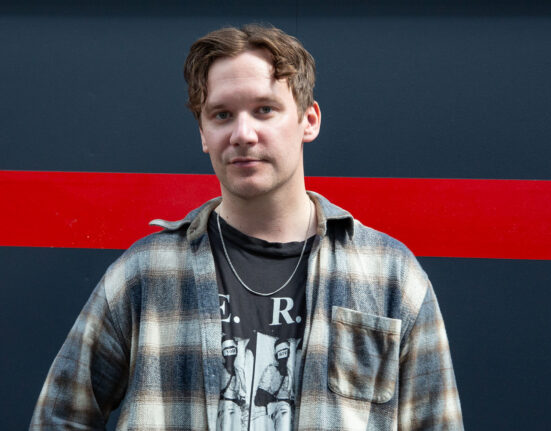
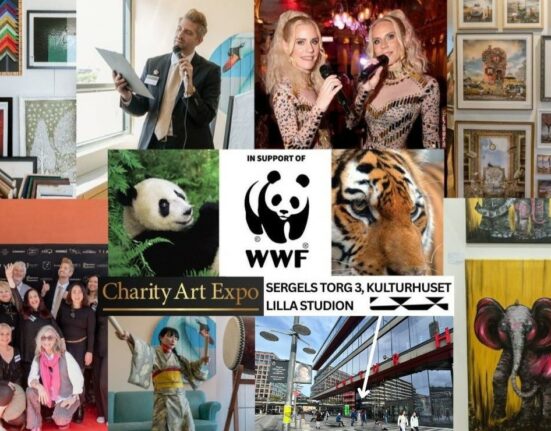
8 Comments